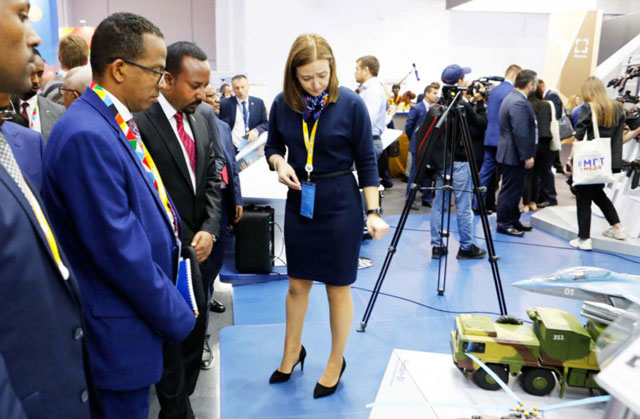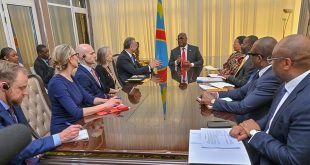
The arms trade is, however, highly secretive. At one time it was revealed that the Israel-based agricultural company Green Horizon was a front for retired Israeli Maj. Gen. Yisrael Ziv’s security company CST who were supplying arms to South Sudan.
And, although there a several sources that claim to rank countries based on their military strength, such as Global Fire Power, some countries like Rwanda and Burundi are rarely explored. Generally, however; among countries in the Great Lakes region, Ethiopia is considered to have the highest firepower, followed by Kenya, and Uganda.
But Kenya and Uganda are far behind countries like Angola, which is playing a significant role in the current Great Lakes region tension.
Rising tension
Tension has been high at the Uganda-Rwanda borders since Feb.27 when Kigali stopped allowing travellers and vehicles from Uganda to cross the joint border at Gatuna.
President Museveni and his Rwanda counterpart, Paul Kagame have blocked open public discussion on the issues and allowed the public to debate only unlikely causes such as the alleged holding of Rwandans in detention in Uganda and alleged repairs on the Gatuna border roads and Uganda’s alleged welcoming of anti-Kagame dissidents of the Rwanda National Congress.
Tension on the Rwanda-Burundi border has lasted longer; since 2017 when Burundi banned the export of fruit and vegetables to Rwanda and direct travel between the two countries ceased. President Pierre Nkurunziza accuses Kagame of being the mastermind of a 2015 coup attempt in Bujumbura. Kigali denies the charge but, in turn, accuses Bujumbura of sheltering camps of the FDLR rebels on its territory.
The open hostility between Rwanda and Uganda is newer but it has a longer history of mutual suspicion and tension obscured by a coating of cordial ties among the Rwandan Tutsi and Ugandan Hima ethnic groups.
Museveni and Kagame are former comrades in arms. With Museveni as leader and Kagame as his lieutenant, they commanded wars that toppled governments in Uganda, Rwanda, and the DRC between 1980 and 1997.
But since becoming president, Kagame has sought to break away from being seen as Museveni’s lieutenant and his country as an extension of the Kampala government. As The Independent has reported before, the two now view each other with suspicion.
According to an International Crisis Group (ICG) report titled `Rwanda/Uganda: A Dangerous War of Nerves’ of December 2001, “in many aspects, the Rwanda-Uganda quarrel looks indeed like an irrational and emotional family feud”.
According to the ICG: “Their intimate twenty-year collaboration means that they know all of each other’s secrets. This feeds paranoia within the top leaderships and tendencies to see previously close associates as possible enemies.
“The Rwanda leadership now views Museveni as domineering and patronising. He is known for his belief in negotiations as a war strategy that he used in both the struggle against the military junta in Uganda in 1986 and in 1994 in Rwanda on behalf of the RPF. This makes it difficult for the leadership in Kigali to trust Museveni’s commitment to any agreement. In return, the Ugandan leadership views Kagame as resilient, driven by the need for recognition as a fighter, arrogant and unwilling to listen to advice.”
The Daily Monitor newspaper in Kampala in December 2018 quoted Kagame saying Rwanda does not take lightly threats of invasions from neighbouring countries.
“Those challenges have been changing forms but they remained in substance a security threat. When it comes to us, our history, we don’t take any security challenge lightly. They say once bitten, twice shy. We have had our taste of it, we wouldn’t want to be found wanting in terms of taking care of our security. Big or small, we will take care of it. We have people around us in the region, others far away, disguised as political activists. There are those who help them directly, others who hide it and call it helping people involved in political struggles. We have to remind them that is not their business, because if they think it is their business then the question is `are they inviting us to make it our business to get involved in their politics?’” he reportedly said.
This attitude shows that Kagame feels that his government and his country face constant threats of elimination. The feeling is compounded by history of oppression and reality of defending a geographically small country in a hostile environment. In military terms, Rwanda lacks “strategic depth”, meaning that any attack cannot be easily absorbed and a counter attack launched. To survive, Rwanda must strike first. That is why its army appears to be constantly on high alert, without room for error of omission.
 The Independent Uganda: You get the Truth we Pay the Price
The Independent Uganda: You get the Truth we Pay the Price




The mother of all question is: why should poor neighboring countries e.g.; Burundi, Rwanda and Uganda members of the EAC go int arms race? It is simply the culture of poverty and dishonesty that we spend our most valuable meager resources on self-destruction and false self-importance.
E.g., in 2011 Mr. Museveni raided the treasury and bought 6 Russian Sukhoi Su-30MK2 jet fighters worth US$740 million. 9 years down the road, the jets are parked to rust away in the tropical heat and rain. Only once in a while, but still piloted by Russians experts (pilots); they are flown around to burn tons of jet fuel/hr.
If the US$740 were put to a productive use, thousands of the 87% unemployed Ugandan youths would have been employed.
Well thought out comment.Actually I keep wondering why we have very few state partnerships.If indeed we were strategic we would be having partnerships in many areas including boarder to boarder patrols.
Sincerely I would call this irresponsible journalism. the un ending confilict in the great lakes region with Uganda at the centre should not be amplifed by any responsible citizens. If it was Bukedde newspaper with this kind of news, it would be understandable but for the Independent, you should rise above this. most people don’t underestimate the role of the mass media during tension and conflict among societies or states and like I have always said it is the arms merchants in the relative safety of the European capitals who celebrate all the way to the bank. In the remote jungles of conflict arena I know you journalist will tell the public what your funders want to hear but for the millions of souls to whom this place is home, your war drums can only presage those sinister motives of the smooth talking leaders of the nations that are involved. Bankrupt would in my words describe these leaders who think firepower is all that is requiered.
And I know for most ugandans who read the figures in this article they feel it is safe but if one looks at conflicts and their progression ,tactics play a significant role in any eventuality. It is for that reason that as a country it makes sense to have friends as neighbours or if need be to avoid conflict with neighbours at all costs .
Guns of whatever make are made for the sole purpose of killingand that is not one thing any country should be proud of. thank you
Need a loan? Contact Altara Loans via email at info@altaraloans.com or via WhatsApp at +3197005030217 for loans ranging between $5000 and $100,000 at just 8% interest rate .